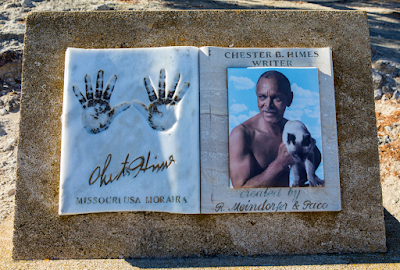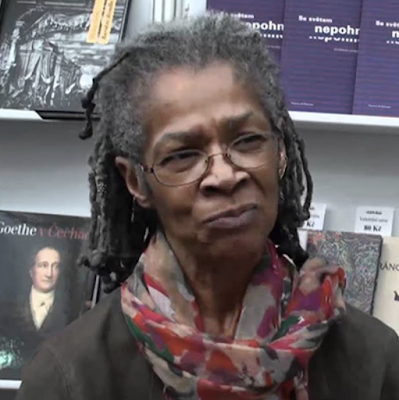Wed--Kwei
(Disclaimer: this post isn’t intended as an all-encompassing treatment of the topic. For more, consult in-depth publications or academic papers.)
African American crime fiction
African American crime fiction reflects the struggles and experiences of Black Americans in the United States. From the early pioneers of the genre to modern-day writers, African American crime fiction has evolved to keep pace with social, cultural, and political changes. I submit to you that crime fiction tackles these topics better than any other genre fiction.
The beginning
Pioneering Black authors wrote crime fiction early on in the twentieth century. Pauline E. Hopkins’s novel Hagar’s Daughter: A Story of Southern Caste Prejudice was published in 1901 and is considered the first detective novel written by an African American. The Black Sleuth, by John Edward Bruce came out in 1907.
 |
| (Image:ifoundthisgreatbook.com) |
In 1957, Chester Himes began his nine-book series with two black NYPD detectives protagonists, Grave Digger Jones and Coffin Ed Johnson, whose names suggest the nature of their police methods and reputation. Cotton Comes To Harlem is his most well-known novel in the series. Himes’s detectives are unmistakably hard-boiled and the novels, set in Harlem, explore police corruption, racism, and poverty.
 2019 memorial dedicated to Chester B. Himes, Moraira, Spain (Image: Shutterstock) |
The 1980s on
In the 1980s and 1990s, a new generation of African American crime writers emerged, including Walter Mosley, whose Easy Rawlins series is a classic of the genre. Mosley’s novels, set in 1940s-50s Los Angeles, feature a Black private detective named Easy Rawlins who investigates crimes in the Black community. Mosley tersely depicts the Black American experience of race, class, and identity, with word economy I find impossible to master. On a personal level, the man is quite hilarious and an expert at spinning a yarn.
 |
| Walter and Quartey at GOG awards, 2014 |
Of note is that Mosley isn’t afraid of either expanding or venturing outside the crime fiction genre. His book Futureland contains nine interconnected short stories that capture the high-tech world of the United States in the near future while rendering social commentary.
Another mystery writer of the era is the late Barbara Neely, whose protagonist is Blanche White, a Black housekeeper who solves crimes in the predominantly white world of the South. Blanche On The Lam was originally meant to be a social commentary, but Neely said in an NPR program, "While people were reading the book to find out who killed who and why, they were also getting a lot of information about race, class, gender, all of the issues that I cared about.”
 |
| Barbara Neely (Image: ifoundthisgreatbook.com) |
After 1990, a cascade of African American crime fiction writers came along, e.g. Gary Phillips, Eleanor Taylor Bland, Paula L. Woods, Penny Mickelbury, Hugh Holton, Grace F. Edwards, and Valerie Wilson Wesley.
In the 21st century, African American crime fiction has continued to evolve and expand, with different writers using different styles. The much-heralded Attica Locke expertly weaves social justice and political corruption into her stories like Bluebird, Bluebird. Another Black woman to have recently gained stardom is Rachel Howzell Hall. Her novel And Now She's Gone is a gripping thriller exploring issues of trust and betrayal. Finally, Tracy Clark, author of the acclaimed Cass Raines series.
The legacy will continue
African American crime fiction has a rich history reflecting the experiences and struggles of Black Americans in the United States. From the early pioneers of the genre to contemporary writers, African American crime fiction has moved with the changing social, cultural, and political times while also captivating readers. It will continue to do so.
~~~















All great, with many more arrived and on the way!
ReplyDeleteGreat piece, Kwei. Thanks. I love SA Cosby's latest work. The last sentence of your piece is already in action!
ReplyDelete